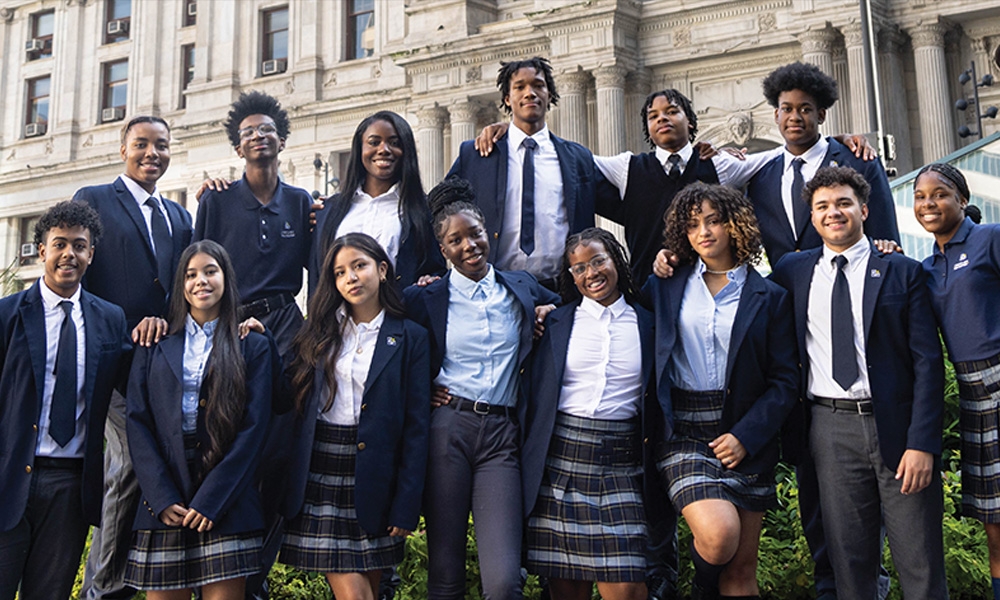
New Catholic high school a possibility for the underserved
A unique model of a faith-based high school education for those who are underserved is currently in the works for the North Charleston area.
A unique model of a faith-based high school education for those who are underserved is currently in the works for the North Charleston area.
Cristo Rey High School, with 40 locations nationwide, first began on Chicago’s west side in 1996. The idea was to bring a Catholic education to students of all faiths living at or below the poverty level.
What makes Cristo Rey unique, however, is an integration of academic curricula and four years of real-life work experience. Students at Cristo Rey will go to school for four days a week, but on that fifth day, they will work in a professional environment. Five students will share a job, each going in to work on their designated day. The companies will pay Cristo Rey for the valuable full-time role they filled because of the school’s program.
Cristo Rey students learn from experiences in the classroom and in the workplace, gaining hands-on experience and priceless life skills. They also graduate from high school with an impressive resume and a professional network. Job partners benefit by diversifying their talent pipeline, and building camaraderie and leadership development among employees.
Timothy Hayes, co-chair of the Cristo Rey feasibility study in North Charleston, said that they are looking for law firms, hospitals, manufacturing companies, human resources departments, finance firms, marketing agencies, government agencies and even IT companies to partner with.
“It is mostly entry-level work across different industries,” explained Hayes.
The companies that utilize the students for work will pay Cristo Rey, which will help offset tuition for these underserved students.
The rest of the money, according to Hayes, comes from scholarships, fundraisers, donations and some family contributions.
The Cristo Rey feasibility study volunteers hope to open in North Charleston in August of 2026 with about 120 students for the first freshman class. Along with looking for companies to partner with, they are also looking at different locations in North Charleston. Hayes assured that there are many options in the area.
“In order to open, we need 35 companies to hire students and amplify the workforce,” he said. The companies would invest $38,000 for four students. The supervisor would report to the school about how the students are doing.
“In this program, the barriers are away and the students can excel in a job that they can take ownership in and it’s something they can feel proud of,” he observed.
The school will be Catholic in nature and identity, but it is open to all faiths. Hayes mentioned that other Cristo Rey High Schools throughout the country see at least half of their students practicing some other faith or not one at all.
Besides the fact that Cristo Rey will have the foundation of a Catholic school, it will also offer many sports to the students, making the experience similar to what it is like at a regular high school.
“I always say that the most viable way out of poverty is education, and I firmly believe that,” Hayes concluded.
Joanna Wusinich, executive director of the Cristo Rey Charleston feasibility study, said the quality of a young person’s education “undoubtedly impacts future opportunities and the quality of that person’s life. The Cristo Rey model is bold, and the results of the 40 schools nationwide are a beautiful demonstration that, with hard work, ingenuity, love and faith, all things are possible.”
The volunteer team behind the feasibility study are asking community members to donate to the cause, become a scholarship donor, commit their business as a corporate sponsor or just spread the word.
For information, visit www.cristoreycharleston.org, contact Joanna Wusinich at jwusinich@cristoreycharleston.org.
